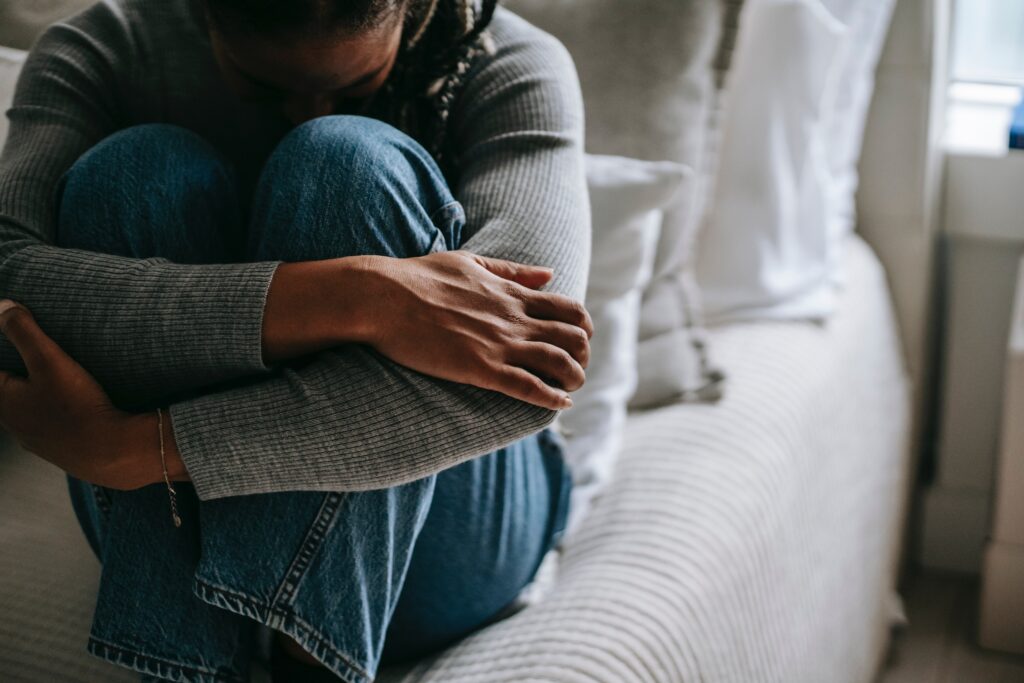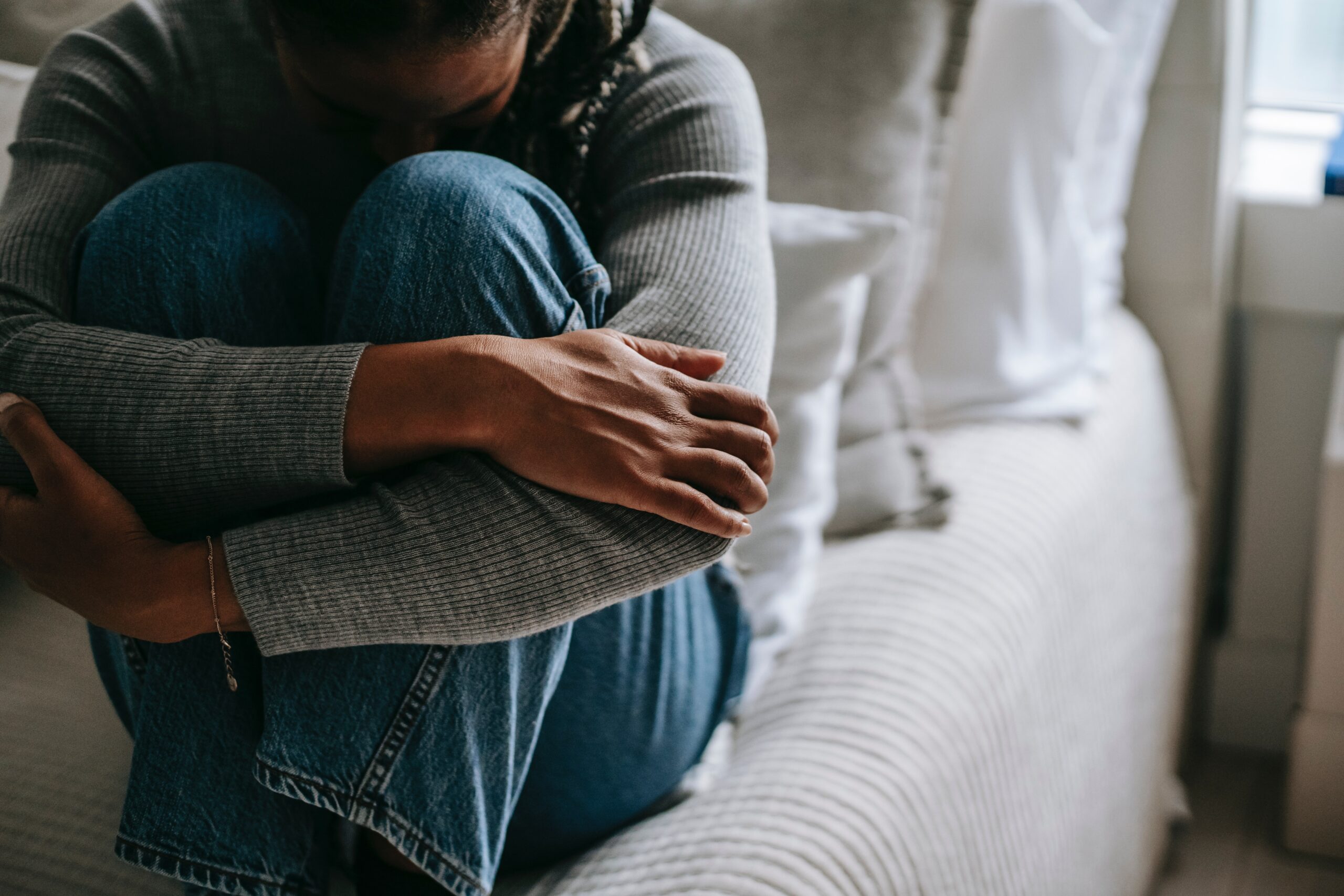
Anxiety is a natural human experience. From the flutter of butterflies before a presentation to the nagging worries about personal issues, anxiety touches us all. However, when these feelings start affecting our day-to-day life, it becomes vital to address them.
1. Understanding Anxiety
a. The Biology Behind Anxiety: Anxiety is essentially an evolutionary survival mechanism. It alerted our ancestors to potential dangers. The ‘fight or flight’ response is what we feel when we’re anxious. When confronted with a threat, adrenaline floods our body, heart rate increases, and our senses sharpen.
b. Types of Anxiety: While occasional anxiety is natural, persistent and excessive anxiety can lead to disorders.
- Generalized Anxiety Disorder (GAD)
- Panic Disorder
- Social Anxiety Disorder
- Obsessive-Compulsive Disorder (OCD)
- Post-Traumatic Stress Disorder (PTSD)
- Specific Phobias
2. Common Triggers
- Stress: Be it from work, relationships, or personal matters.
- Traumatic events: Accidents, abuse, or any significant life-changing event.
- Health issues: Especially chronic conditions or unknown health issues.
- Medications: Some can cause anxiety or exacerbate its symptoms.
- Caffeine & Alcohol: High doses can sometimes trigger anxiety in some individuals.
3. Managing & Overcoming Daily Anxiety
a. Self-Help Strategies
- Mindfulness & Meditation: Grounding exercises can bring you back to the present.
- Physical Exercise: A natural anxiety reducer, it releases endorphins which act as natural painkillers and mood elevators.
- Limit Stimulants: Reduce caffeine and sugar, which can make you feel jittery.
- Sleep: Ensure you get adequate and quality sleep.
b. Professional Help
- Cognitive Behavioral Therapy (CBT): This is one of the most effective treatments for anxiety. It involves identifying negative thought patterns and changing them.
- Medication: Some people benefit from medications that treat anxiety, but they should be taken under the guidance of a healthcare professional.
c. Alternative Therapies
- Acupuncture: Some find relief from anxiety through this ancient practice.
- Yoga & Tai Chi: These blend physical activity with mindfulness and breathing exercises.
- Biofeedback: This teaches you to control physiological functions like heart rate, muscle tension, and skin temperature.
4. Building Resilience
- Stay Connected: Maintaining a support system is crucial. Talk to friends, family, or support groups.
- Accept that Change is Part of Life: This helps in adjusting expectations and realities.
- Set Realistic Goals: Break tasks into manageable steps and prioritize.
- Educate Yourself: The more you know about anxiety, the better equipped you are to deal with it.
5. When to Seek Help
If you feel that anxiety is taking over your life or if self-help strategies aren’t working, it may be time to see a professional. Remember, there’s no shame in seeking help; in fact, it’s a sign of strength and self-awareness.
6. Diet and Nutrition
a. Balanced Diet: Ensure you’re consuming a diet rich in vegetables, fruits, lean proteins, and whole grains. Certain deficiencies, like magnesium or vitamin B12, can exacerbate anxiety symptoms.
b. Probiotics: There’s emerging research on the gut-brain connection, indicating that a healthy gut can influence brain health and mood.
c. Limit Alcohol and Sugar: Both can not only trigger anxiety symptoms but can also affect the balance of serotonin, a neurotransmitter that helps regulate mood.
7. Hobbies and Activities
a. Creative Outlets: Engaging in activities such as painting, writing, or playing musical instruments can serve as distractions and therapeutic outlets.
b. Nature Walks: Being in nature has been shown to reduce anxiety and improve mood. Even a short walk can make a significant difference.
8. Daily Practices
a. Journaling: Writing down your feelings can provide an outlet for your emotions and offer clarity.
b. Breathing Techniques: Simple deep breathing exercises can calm the mind.
c. Set Boundaries: This is crucial, especially in our digital age. Set specific times to check emails or social media and stick to them.
9. Learning and Personal Growth
a. Read: There are countless self-help books on managing anxiety that offer varied perspectives and techniques.
b. Workshops and Seminars: Joining workshops can provide hands-on strategies and a chance to meet others who are going through similar experiences.
10. Avoid Negative Triggers
a. Limit News Consumption: Constant exposure to negative news can exacerbate anxiety. Stay informed, but in moderation.
b. Surroundings: Make your living space a sanctuary. Organized and peaceful surroundings can have a calming effect.
11. Pets and Animal Therapy
a. Companion Animals: Pets, particularly dogs and cats, can provide emotional support and routine.
b. Animal-assisted Therapy: Interacting with animals has been shown to reduce feelings of anxiety, depression, and loneliness.
12. Natural Supplements
a. Chamomile & Lavender: Both are known for their calming properties. They can be consumed as tea or used as essential oils.
b. Omega-3 Fatty Acids: Found in fish oil, these have shown to reduce symptoms of anxiety.
c. Valerian Root: Often used as a sleep aid, it can also help with relaxation.
13. Stay Educated
Understanding the difference between anxiety disorders and daily stress or worries can help in managing expectations and seeking the right kind of help.
14. Remember Self-Worth
Reinforce the idea that your value isn’t determined by your productivity or the opinions of others.
15. Technology and Apps
There are numerous apps available today designed to help manage anxiety, from meditation apps to CBT-based apps that can guide you through anxiety management techniques.
Incorporating a combination of these points, tailored to individual preferences and needs, can create a comprehensive approach to understanding and managing daily anxiety. It’s essential always to be in tune with oneself and continuously evaluate what’s working and what isn’t.
16. Time Management and Routines
a. Prioritize Tasks: List tasks in order of importance. Completing tasks can offer a sense of achievement and reduce feelings of being overwhelmed.
b. Establish Routines: Routines can offer predictability in a chaotic world, which can be comforting and reduce anxiety.
17. Social Interaction and Relationships
a. Quality Over Quantity: Surround yourself with positive, supportive individuals who understand or empathize with your anxiety.
b. Join Support Groups: Connecting with others who experience similar feelings can provide insights and shared coping strategies.
18. Limit Stimulants and Depressants
a. Tobacco: Nicotine is a powerful stimulant that can induce or exacerbate anxiety.
b. Recreational Drugs: Substances like marijuana can have anxiety-inducing effects on certain individuals.
19. Music and Sound Therapy
a. Calming Music: Listening to calming tunes can reduce cortisol, a stress hormone.
b. Binaural Beats: These are audio tracks that can influence the state of your brainwaves, potentially reducing anxiety.
20. Grounding Techniques
a. 5-4-3-2-1: Identify five things you can see, four you can touch, three you can hear, two you can smell, and one you can taste. This helps bring you to the present moment.
b. Object Focus: Holding onto an object and focusing on its texture, temperature, and other physical qualities can divert your mind from anxious thoughts.
21. Hydration and Health
a. Drink Water: Dehydration can sometimes mimic or exacerbate symptoms of anxiety.
b. Regular Check-ups: Some medical conditions, like thyroid disorders, can produce anxiety-like symptoms.
22. Travel and Exposure
a. New Environments: Changing surroundings, even if just for a short trip, can give a fresh perspective and break from daily triggers.
b. Safe Exposure: Gradual exposure to anxiety-inducing situations, under controlled circumstances, can reduce the fear response over time.
23. Limit Multitasking
While multitasking might seem efficient, it can scatter focus, decrease productivity, and increase anxiety. Instead, try to focus on one task at a time.
24. Practice Gratitude
a. Gratitude Journal: Daily jotting down a few things you’re grateful for can shift focus from what’s lacking or stressful to what’s abundant in your life.
25. Visualization and Positive Affirmations
a. Mental Rehearsal: Visualize yourself succeeding or handling situations with ease.
b. Affirmations: Positive self-talk and affirmations can reframe the mind’s focus and reduce anxiety-inducing negative thoughts.
26. Engage in Continuous Learning
Constantly educate yourself about new techniques, therapies, or strategies emerging in the field of anxiety management.
27. Dress Comfortably
The way you dress can influence your mood. Wearing comfortable clothes can make you feel more relaxed and less restricted.
28. Humor and Laughter
Engaging in activities or watching content that makes you laugh can act as a natural stress reducer.
29. Engage in Sensory Activities
Activities like gardening, clay modeling, or even cooking can be therapeutic, engaging multiple senses.
30. Set Personal Boundaries
Learn to say “no” when necessary. Overcommitting or not respecting your limits can lead to increased stress and anxiety.
Incorporating these strategies, individually or in combinations, can offer a holistic approach to managing daily anxiety. Remember, it’s essential to find what works best for you, as everyone’s experience with anxiety is unique.

